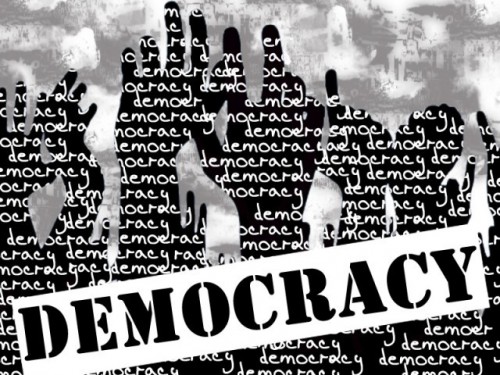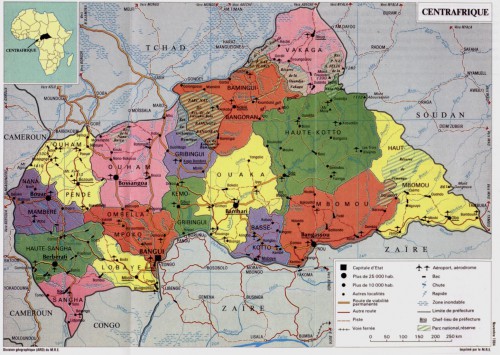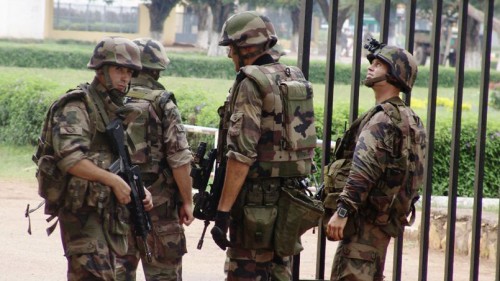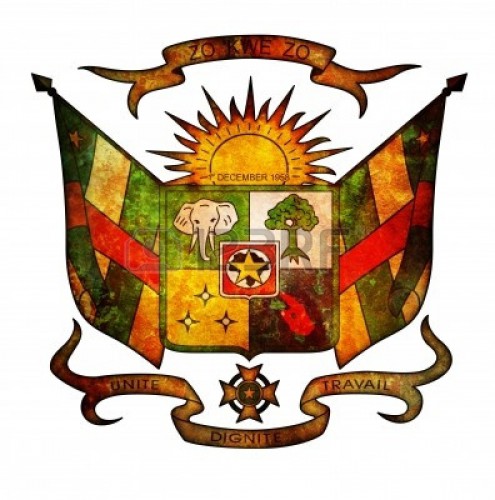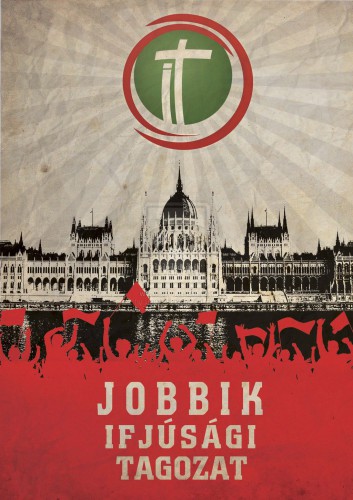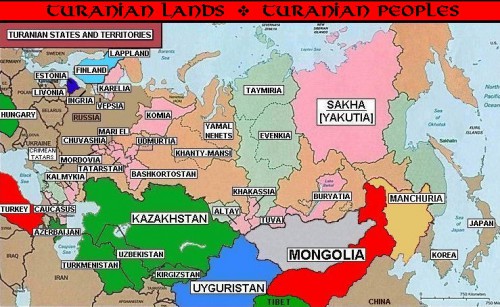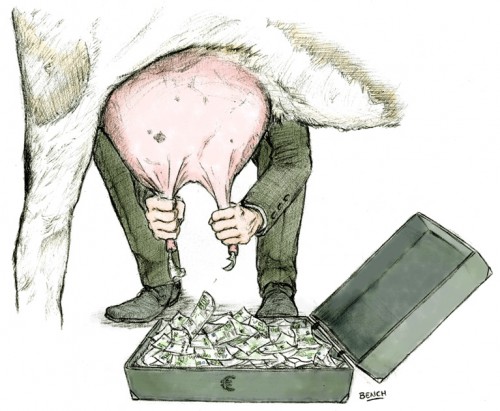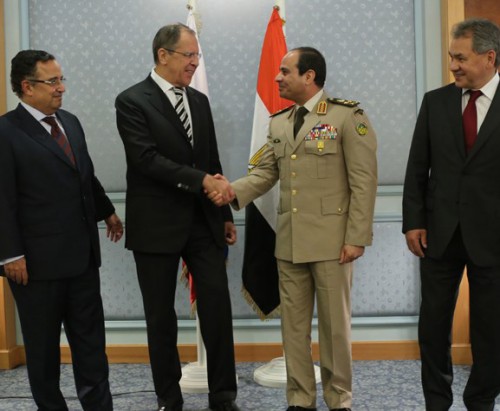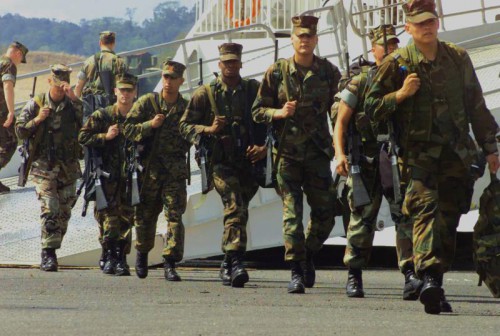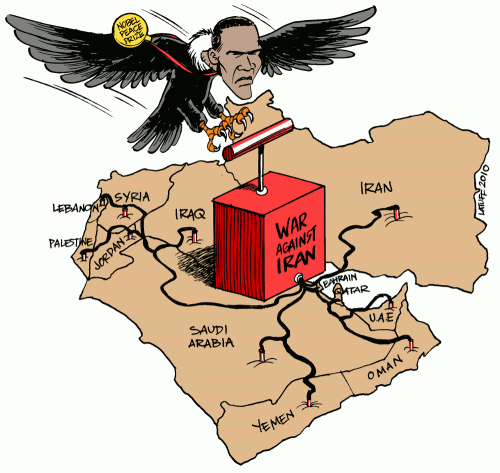
Notes sur le désordre “apolaire” du Moyen-Orient
Ex: http://www.dedefensa.org
L’étrange “politique” américaniste au Moyen-Orient, que certains voient comme un spectacle de “folies-bouffe” (ce 7 novembre 2013), d’autres comme une quête dérisoire et sans fin de l’«America’s Top Diplomat [Kerry] Lost in Space» (voir le 3 novembre 2013, sur TomDispatch.com), conduit à un désordre considérable que certains acteurs mieux organisés songeraient à réorganiser.
De là s’explique l’entêtement considérable du site DEBKAFiles à construire, nouvelle exclusive après nouvelle exclusive, l’impression d’une sérieuse entreprise de réorganisation de la région de la part de la Russie, à laquelle Israël, incontestable pays favori du même DEBKAFiles, ne serait pas indifférent. D’où, selon une logique développée par la même source, cette rencontre Poutine-Netanyahou du 20 novembre à Moscou, annoncée le 5 novembre un peu avant que John Kerry, le “Top Diplomat Lost in Space” ait posé un pied, le gauche ou le droit, sur le sol israélien. La nouvelle de cette rencontre n’a guère suscité de commentaires ni de supputations dans la presse-Système des pays du bloc BAO, à peine son annonce ici et là, ce qui est peut-être un indice de son importance. Ainsi en est-il également (discrétion) de la visite de Lavrov et du ministre russe de la défense russe au Caire, mardi et mercredi prochain.
Note sur un “fil rouge” à suivre avec des pincettes
Si nous citons DEBKAFiles avec toutes ses casseroles des liens avec la propagande et “les services” israéliens, c’est avec les considérables réserves d’usage, maintes fois mentionnées, avec à boire et à manger, avec fort peu à boire (source claire) et beaucoup à manger (débris troubles et stagnants) ... L’expression «se dit d’un liquide, vin, bouillon, café, etc., trouble et épais» et, au figuré, «se dit d’une question qui présente deux sens, d’une affaire qui peut réussir ou ne pas réussir, d’un ouvrage où il y a du bon et du mauvais».
Il faut donc séparer le bon grain de l’ivraie (autre expression, marquant décidément combien cette sorte de situation est courante) ; c’est notre tâche et une tâche délicate, où l’intuition prend le pas sur la connaissance. Si nous citons DEBKAFiles (bis), un peu comme un fil rouge de cette Notes d’analyse, c’est parce qu’il faut reconnaître au site israélien qu’il a beaucoup insisté et “révélé” sur des événements qui commencent à se concrétiser, et notamment (voir ci-dessous), le cas du rapprochement vers une coopération stratégique et militaire, – ce qui n’est pas rien en fait de bouleversement, – de la Russie et de l’Égypte.
Judo Bandar-Poutine
Il y a plusieurs volets, plusieurs orientations, certains diraient “plusieurs pistes” dans cette supputation que constituent ces Notes d’analyse, mais la logique répond à un grand événement qui est celui d’une nouvelle “grande absence”, qui est la politique en pleine dissolution des USA au Moyen-Orient. Le premier signe déjà lointain, entretemps considérablement brouillé par divers événements où l’habileté bien connue mais un peu trop réduite à la tactique de manigance de Prince Bandar-le-diabolique, remonte à la rencontre extrêmement secrète de ce dernier avec Poutine, à la fin juillet. Rarement rencontre “secrète” n’aura reçu autant d’attention et de célébrité, autant d’interprétations, autant d’appréciations impératives et en divers sens contraires.
Le 24 août 2013, nous donnions notre appréciation de cet événement “secret” en signalant au moins un point d’accord, qui aurait été l’idée que la Russie envisage de vendre des armes à l’Égypte (Bandar parlant alors au nom des Saoudiens qui soutiennent financièrement l’Égypte depuis l’intervention des militaires et la chute de Morsi donnent aux Égyptiens une aide financière puissante, supérieure à $10 milliards). Ces échanges de vue se faisaient sur fond de mésentente grandissante entre les USA et l’Égypte, et un sentiment anti-US grandissant en Égypte, – la chose s’étant confirmée depuis par des mesures de restrictions de l’aide militaire US à l’Égypte. Le reste de l’entretien “secret” est plus incertain, voire franchement antagoniste, avec des menaces voilées de Bandar (qui s’en délectaient) à l’intention des Russes et des réactions furieuses de Poutine.
(Un conseiller de Poutine qui se trouvait, avec quelques autres, dans l’antichambre de cette rencontre en tête-à-tête [plus les interprètes] qui dura quatre heures, a fait quelques confidences à quelques amis. Il vit sortir de l’entretien un Poutine manifestement furieux, presque rouge de colère, et un Bandar avec une expression presque triomphante et certainement sardonique. Dans la perspectives qu’on connaît désormais, on fera de ces précisions d’humeur un témoignage des caractères respectifs plus qu’une mesure des résultats de la rencontre. C’est vrai qu’il y eut des mots de Bandar qui ressemblait à des menaces adressées à la Russie [le passage sur le terrorisme tchétchène et les JO de Sotchi], et Poutine n’aime pas qu’on traite la Russie comme une vulgaire Syrie ; peut-être la colère de Poutine, personnage que les gazettes anglo-saxonnes nous décrivent comme “très physique”, vint-elle de son regret qu’il n’y ait pas eu un complément à l’entretien du type rencontre de judo.)
Lavrov au Caire
Nous restons sur cette question des relations Russie-Égypte et des armes russes ... Après diverses affirmations officieuses à cet égard et dans le sens évoqué plus haut, dès le courant août (voir le 19 août 2013), notamment très péremptoires de la part de DEBKAFiles, l’idée a pris une tournure très officielles depuis hier (Novosti, le 8 novembre 2013), et une allure-turbo avec l’annonce de la visite des ministres russes de la défense et des affaires étrangères la semaine prochaine (les 12-13 novembre) pour la négociation de contrat d’armements russes modernes portant sur $4 milliards.
«“We are ready to negotiate with the Egyptian side the possibility of deliveries of new weaponry as well as repairing equipment supplied in Soviet times,” the Rosoboronexport official told RIA Novosti. He said such new deliveries would depend on Egypt’s ability to pay for them. But he noted, “Moscow is ready to discuss with Cairo a possible loan to that country.” [...]
«Russian Foreign Ministry spokesman Alexander Lukashevich said earlier Friday that Russian Defense Minister Sergei Shoigu and Foreign Minister Sergei Lavrov will meet with their Egyptian counterparts during their visit to Egypt on November 13-14. The Russian delegation will include the first deputy director of the Federal Service on Military-Technical Cooperation, Andrei Boitsov, and Rosoboronexport officials. “The upcoming visit will help us to outline the prospects of our [defense] cooperation,” the Rosoboronexport source said...»
Sur cette question des armements russes pour l’Egypte, DEBKAFiles frappait fort, le 29 octobre 2013, en écrivant que les Egyptiens, qui recevaient ce jour-là au Caire le chef d’état-major adjoint russe et chef du GRU, le général Kondrachov, voudraient effectivement beaucoup d’armes russes, dont des missiles balistiques de théâtre à portée moyenne (2 000 kilomètres), des SS-25. («[The Egyptians] told the Russian general that Moscow’s good faith in seeking to build a new military relationship between the two governments would be tested by its willingness to meet this Egyptian requirement. They are most likely after the brand-new SS-25 road-mobile ICBM which has a range of 2,000 km., which the Russians tested earlier this month.») Le 4 novembre 2013, DEBKAFiles remet cela en annonçant que les Russes demanderaient aux Égyptiens la disposition d’une port de relâche qui serait presque une base en Égypte pour leur flotte en Méditerranée (Alexandrie et Port-SaÏd étant parmi les options envisagées). Le site israélien ne manque pas de répéter ce qu’il martèle régulièrement, savoir que tout cela est soutenu, non plus encore, encouragé et même machiné par les Saoudiens de Riyad, comme vu plus haut dans le chef franc et ouvert de prince Bandar : «As DEBKAfile reported earlier, Saudi Arabia engineered the Russian-Egyptian rapprochement with a view to bringing Russian military advisers back to Egypt for the first time since they were thrown out in 1972. Moscow was designated as major arms supplier to the Egyptian army in lieu of Washington.»
Passons donc, puisqu’on nous y invite, à l’Arabie Saoudite.
Fureurs saoudiennes
Depuis près de deux mois, depuis l’attaque US avortée contre la Syrie, l’Arabie tempête. Il y a d’abord le volet opérationnel et stratégique agressif : prendre en mains les affaires, et suppléer à l’inconsistance et à la dissolution de la politique US, contre la Syrie, mais aussi contre la “machination“ US du rapprochement avec l’Iran. Il y a ensuite et surtout la dénonciation extraordinaire des USA par l’Arabie. La fureur anti-US de l’Arabie s’est étalée publiquement à partir de la mi-octobre. La “crise syrienne” (guillemets nécessaire) est ainsi devenue “la crise autour de la Syrie” avec le considérable appendice iranien. Essayons, non pas d’y voir plus clair, mais simplement de dérouler quelques nouvelles qui, mises à bout à bout, rendent un son charmant de désordre chaotique ou de chaos désordonné, c’est selon. Là-dessus, rien n’empêche de construire de grandes prospectives concernant cette région, ce n’est pas Prince Bandar qui démentira.
La colère, voire le mépris furieux des Saoudiens vis-à-vis de leurs tuteurs et alliés de plus de deux tiers de siècle s’est affichée et s’affiche sans la moindre retenue. Le 24 octobre, le service BBC Monitoring Middle East a diffusé une traduction d’un article du Elaph News Website, site réputé comme influent et bien informé pour l’Arabie Saoudite et les pays du Golfe. Il y a d’abord les remarques extrêmement acerbes, et publiques, de Prince Turki al-Fayçal, membre de la famille royale, ancien chef du renseignement saoudien, ancien ambassadeur du royaume à Londres et à Washington... «Prince Turki al-Faysal made scathing critical remarks of Obama’s policies in Syria and described them as “worthy of lamentation.” [...] Prince Turki described Obama`s policies in Syria as “lamentable” and mocked the US-Russian agreement on getting rid of the chemical weapons of Al-Asad`s government. [...] [Turki] said: “The present drama on the international control of the chemical arsenal of Bashar al-Asad will be comical, if not blatantly ridiculous, and it aims at giving the chance to Mr Obama to back down (on carrying out military strikes) and also help Al-Asad to slaughter his people.”»
Le même texte, après avoir détaillé divers aspects de la situation saoudienne en fonction de sa brouille, ou supposée avec les USA, conclut à partir d’une source saoudienne présentée comme très sûre et de très haut niveau : «The Saudi source said: “All the options are on the table now, and certainly there will be some impact.” He added that no more coordination with the United States will take place concerning the war in Syria where Saudi Arabia provides opposition groups fighting Al-Asad with weapons and money.»
L’idylle Tel Aviv-Ryhad
On sait que cette querelle entre l’Arabie et les USA a été présentée avec le complément d’un rapprochement stratégique remarquable entre les Saoudiens et Israël. Des informations officieuses ont déjà cité des visites de Prince Bandar en Israël et, dans l’autre sens, des déploiement de certains militaires israéliens, notamment en Arabie (voir notre texte du 19 octobre 2013). Le climat de la communication est à mesure ... Un commentaire israélien typique de cette situation est celui de Ariel Kahane, dans Ma’ariv du 25 octobre 2013 : «The rift between the US and its allies in the Middle East on the Iranian issue is widening. For the first time in the region’s history, the Arab countries are forming a united front with Israel against the more lenient position being taken by the Obama administration.» Il y a beaucoup d’écho aux déclarations de la ministre israélienne Tzipi Livni lors d’un récent colloque (voir Gulf News [Reuters], le 25 octobre 2013 : «Israelis, Saudis speaking same language on Iran, says Tzipi Livni. There is a need to cooperate with those who perceive Iran as a threat, says minister...»).
DEBKAFiles s’intéresse évidemment beaucoup à cette querelle entre USA et Arabie, d’autant plus qu’il y a cet élément de proximité de circonstance de l’Arabie avec Israël. Le 25 octobre, le site, dans son domaine payant, affirmait que les Saoudiens avaient décidé de livrer des armes avancées (missiles) antichars et antiaériennes rapprochées, du type que les pays du bloc BAO, et surtout les USA, ont officiellement prohibé de crainte qu’elles ne tombent dans les mains des extrémistes. La décision est aussi bien opérationnelle (en faveur des rebelles syriens) que politique (en défiance des USA). Le rapport de DEBKAFiles annonçait notamment : «The US media suddenly discovered Tuesday Oct. 22 that Saudi Arabia had a serious bone to pick with US President Barack Obamaover his Middle East policies, a pivotal development which DEBKA has been carefully tracking in the four months since the first major falling-out occurred over Egypt’s military coup. [...] The Saudis had meanwhile gone into action. That same Tuesday, DEBKA's intelligence sources in the Gulf disclose, a small summit met quietly in Riyadh of likeminded Mideast and Gulf heads of state to determine how and from what territory heavy weapons systems would be put in the hands of the Syrian rebel militias backed by Saudi intelligence. They decided that those militias must be given enough anti-aircraft and anti-tank missiles to stand up to Assad’s army – a direct challenge to the Obama administration’s resolve to keep out of rebel hands the heavy hardware capable of contending with Bashar Assad’s tanks and air force.»
L’Amérique qui-n’a-rien-à-craindre
Pour autant, la partie US et le bloc BAO, du côté des commentateurs, ne s’affolent nullement. Ce point de vue du type “pas de panique, la situation est sous contrôle” est appuyé sur les certitudes occidentales et surtout anglo-saxonne, d’une hégémonie continue et de la situation, pour les alliés-vassaux, de ne pouvoir rien faire d’important sans le soutien anglo-saxon. C’est ce que notait Karen Elliott House, dans le Wall Street Journal du 24 octobre 2013 ; elle parlait, pour qualifier la position de l’Arabie, d’une situation où leur propre survivance continue à dépendre de leurs protecteurs de déjà plus d’un demi-siècle : «Sadly for the Saudis, there is no alternative protector, which means the two countries will continue to share an interest, however strained, in combating terrorism and securing stability in the Persian Gulf.» On peut trouver la même analyse, par exemple, chez Shashank Joshi, du Royal United Services Institute (RUSI) britannique, rapporté par Bloomsberg.News le 23 octobre 2013.
Certains vont même jusqu’à rassurer Washington sur l’excellence de sa “politique” en l’assurant que l’Arabie et ses amis du Golfe, avec leur soi-disant politique indépendante, vont rapidement se trouver devant le monstre qu’ils ont contribué à créer : un al Qaïda gonflé aux stéroïdes du Golfe, se retournant contre le Golfe. C’est le cas de David Andrew Weinberg, Senior Fellow à la Foundation for Defense of Democracies (un think tank de tendance néoconservatrice, semble-t-il), sur CNN le 25 novembre 2013...
«Some observers are bullishly optimistic about the foreign policies of America’s Gulf allies, suggesting Saudi Arabia backs “the least Islamist component of the rebellion” and Qatar’s young new emir is displaying a more “mature” foreign policy that seeks to avoid controversy in places like Syria. However, there is worrying news coming from Syria’s Raqqa Province, now controlled by the al Qaeda affiliate Islamic State of Iraq and the Levant (ISIL). Hateful books described by several different sources as the area’s new academic curriculum,reportedly originate from Saudi Arabia.»
Alerte terrorisée
Tous ces avis sont relatifs dans la mesure où ils parlent d’une “politique” des USA au Moyen-Orient. On sait l’état de la chose. Par contre, là où ils n’ont pas nécessairement tort, même si par inadvertance peut-être, dans l’évaluation des situations et la perception des différents acteurs, c’est pour ce qui concerne la “politique extérieure” de l’Arabie/des pays du Golfe. On peut même prendre l’avis de Weinberg et remarquer qu’il rejoint des appréhensions de DEBKAFiles, pourtant dans le camp opposé pour ce cas puisque favorable in fine à la “politique” saoudienne de la saison, à la fois anti-iranienne et anti-US, donc proche d’Israël, – mais tout ce beau monde se trouvant, à cause de leur autre “politique“ syrienne anti-Assad, effectivement en train de fabriquer un monstre.
Donc, le 26 octobre 2013, DEBKAFiles sonne l’alarme, pour Israël, pour le Liban, pour la Jordanie, pour l’Égypte, enfin pour l’Arabie Saoudite, voire pour l’Irak et le Yemen (sans parler de la Syrie), etc. Soudain, l’on fait état d’une monstrueuse extension des effectifs et des capacités d’al Qaïda à partir du “centre” syrien, et cela malgré que les activités des divers pays cités comme étant menacés aient contribué, au moins indirectement, à cette expansion en affrontant le régime syrien d’Assad. (On notera dans cette citation qu’il est même question d’un apport de djihadistes du Caucase, ce qui nous amène à nous interroger à propos des affirmations bombastiques de prince Bandar face à Poutine fin juillet, sur sa capacité à faire faire ce qu’il veut aux terroristes islamistes du même Caucase...)
«The alarm in the Israeli and Jordanian high commands over Al Qaeda’s looming encroachments is shared by Saudi Arabia, whose intelligence services now estimate that Al Qaeda and its multiple branches have massed some 6,000 fighting activists in Syria – 12 percent of them Saudi nationals. Since more are pouring into the country all the time, intelligence experts in Riyadh calculate that the current number will double itself in the next six months. And that will not be the end: the 12,000 jihadists concentrated in Syria by next spring may have multiplied to 15-18,000 by the winter of 2014. Most of them are streaming in from across the Muslim world including the Russian Caucasian.
»Saudi Intelligence chief Prince Bandar bin Sultan, who is in charge of the Saudi effort in Syria, has warned that Riyadh cannot afford to have al Qaeda hanging massively over its front, back and side doors – in Syria, Iraq, Yemen and Egyptian Sinai, and threatening to overrun Lebanon and Jordan. A jihadi victory in Syria would boost al Qaeda in Iraq on its northern border.
»Israel is in the same position...»
Perspectives iranienne et syrienne
... Tout cela nous conduit à minimiser considérablement le tohu-bohu considérable fait autour de la fronde saoudienne, menaçant de partir en guerre au côté d’un Israël qui ne sait plus exactement qui attaquer en premier. Quant à une alliance israélo-saoudienne pour ramener l’Iran “à l’âge de pierre”, selon la délicieuse recette du général LeMay en mal d’attaque aérienne, on peut s’autoriser quelque scepticisme, – entre Israël qui ne contrôle plus ses propres drones destinés à réduire la défense anti-aérienne iranienne (voir le 19 octobre 2013), et l’Arabie qui attaque à coups de $milliards et de djihadistes qui lui reviennent en boomerang “gonflé aux stéroïdes”. Il y a bien les annonces spectaculaires jusqu’au surréalisme d’une Arabie saoudite devenant nucléaire avant l’Iran, grâce à l’achat d’une bombe pakistanaise, resucée d’un vieux canard relancé par la BBC (le 6 novembre 2013) et dont profite DEBKAFiles pour étoffer ses scoops parfois très fantasyland ; le doute est de rigueur, comme chaque fois lorsqu’une narrative veut nous convaincre que l’Arabie a des muscles et aura l’audace de s’en servir. Comme dit la chanson : «Che sera, sera...»
En attendant, les négociations sur l’Iran, comme on le sait, ont avancé. Prêtes d’être bouclées ce 9 novembre, dans tous les cas pour ce qui est d’un accord intermédiaire, bloquées par la France posant en extrémiste de type neocon et défenderesse des intérêts israéliens selon ses étranges et nouvelles habitudes de politique extérieure correspondantes à une situation intérieure en complète dissolution, on espère que leur reprise, le 20 novembre, permettra effectivement un tel accord. (Voir Russia Today le 9 décembre 2013.) A côté de cela, l’autre point chaud qui faillit, lui aussi (puisqu’on a souvent parlé de guerre mondiale à propos de l’Iran), nous précipiter fin août dans une “Troisième Guerre mondiale” terriblement usée à force de n’avoir pas servi, dito la Syrie, se replie dans les violences coutumières et les amertumes des rebelles, entre ceux de ces rebelles qui croient qu’Assad va gagner (Antiwar.com le 9 novembre 2013) et ceux des rebelles qui espèrent qu’Assad l’emportera, plutôt que les extrémistes djihadistes (Buzzfeed, le 8 novembre 2013). Bien entendu, la perspective de Genève-II continue comme d’habitude à s’éloigner au plus l’on s’en rapproche, et DEBKAFiles clame bien fort (le 6 novembre 2013), se référant à de nouvelles perspectives où la rencontre Poutine-Netanyahou tient une place majeure : «Geneva II cancelled: Moscow I is the big coming event...»
... Si nous sommes si courts sur ces deux chapitres, si importants puisqu’ils ont monopolisé l’essentiel de la tension au Moyen-Orient depuis sept et trois ans, et ’attention officielle par conséquent, c’est parce que notre sentiment est que nous serons très vite en voie de découvrir, si leurs tendances actuelles se poursuivent, qu’ils sont moins importants en eux-mêmes que par les tensions centrifuges et indirectes considérables qu’ils ont suscitées. Ces deux énormes crises ont été suscitées par des montages, par des narrative, essentiellement de fabrication garantie bloc BAO comprenant Israël certes (à peu près dans la proportion, pour la paternité des narrative, de 99% contre 1% en faveur du bloc, pour prendre le rapport favori de notre Système triomphant). Ces deux crises sont, pour leur ampleur et leur expansion, l’expression des phantasmes, des paranoïas, de la “fuite en avant” mâtinée d’hybris grossière, enfin de l’auto-terrorisation des directions politiques du Système attentives aux agitations des basse-cours provinciales de leurs capitales respectives. Leurs issues, si issues il y a et si c’est dans le sens qui se dessine, ne constitueraient pas un bouleversement mais un règlement géopolitique dans une époque qui n’évolue que sous la dynamique du système de la communication. Pour prendre la perspective la plus optimiste, on dirait qu’un accord avec l’Iran ne ferait pas de l’Iran le pays hégémonique et conquérant du Moyen-Orient, parce que l’Iran, qui a une diplomatie avisée et principielle, ne mange pas de ce pain-là ; et un tel accord ne créerait pas un axe Washington-Téhéran, parce que les USA ne peuvent faire d’axe avec personne et qu’ils ont l’esprit ailleurs, complètement ailleurs, c’est-à-dire en plein effacement...
Le changement profond de ce bouleversement tourbillonnant et vibrionnaire actuel se trouve, à notre sens, dans deux orientations respectivement d’influence et de désordre, qui, toutes les deux, dépendent dans leur expansion, moins de la géopolitique que de la communication.
Le triomphe méthodologique russe
Certes, on peut parler dans l’évolution générale de la situation du Moyen-Orient d’un “triomphe russe” dans la méthodologie, obtenu avec un sang-froid remarquable et sans agitation excessive malgré des situations qu’on percevait parfois comme très pressantes, et justement ce sang-froid et cette absence d’agitation ayant projeté une perception à la fois de fermeté de comportement, de sûreté de jugement, de solidité de situation, de retenue de l’ambition. A peu près tout le contraire des USA, qui ont congénitalement un comportement erratique, un jugement changeant, une situation totalement incertaine et des ambitions grotesques de réaffirmation constante d’une hégémonie en pleine dissolution, et ainsi les USA qui ne cessent de s’éclipser de plus en plus rapidement, comme on s’efface, des restes de leur position “impériale”. Ainsi les Russes apparaissent-ils comme une “borne de stabilité” (plutôt que l’expression trop structurée de “pôle de stabilité”, – voir plus loin), dont la proximité n’est pas vraiment dangereuse, au contraire de l’instabilité US qui risquerait à chaque moment de vous emporter. (Même des acteurs devenus secondaires à cause de leur propre comportement erratique, reconnaissent cela, comme la Turquie, qui resserre ses liens aussi bien avec l’Iran qu’avec la Russie, selon cette même logique qu’on décrit ici.)
Les cas les plus remarquables concernent les deux pays les plus instables ou les plus extrêmes dans leurs positions vis-à-vis des USA et vis-à-vis des tensions en cours. D’un côté, beaucoup sinon tout semble opposer, dans nombre de circonstances, Israël et l’Arabie Saoudite d’une part, la Russie de l’autre. Il y a des occurrences où l’on pourrait même envisager qu’ils s’opposent directement dans des situations d’affrontement (la Syrie). Pourtant, la tendance inverse semble devoir trouver une possibilité de s’exprimer, voire de gagner du terrain si l’on accepte certaines interprétation, – , savoir que, pour ces deux pays, une proximité avec la Russie présente de nombreux avantages de situation, – sans qu’il soit question d’“alliance”, de “tutorat”, etc., de quelque façon que ce soit. Ainsi, et pour prendre le cas précis vu plus haut, un mouvement se dessine-t-il pour envisager que la Russie puisse constituer, en échange d’avantages stratégiques, une sorte de soutien extérieur à l’Égypte, pour tenter d’éviter à ce pays de sombrer dans une instabilité meurtrière ou suicidaire. C’est favoriser, dans le chef d’une Arabie anti-Assad, deux pays qui sont ouvertement (Russie) ou discrètement (Égypte) pro-Assad.
On peut certes parler d’un “retour triomphal” des Russes, dans la possibilité de telles perspectives, par rapport aux décennies qui viennent de s’écouler. Mais il s’agit plus d’une situation à la fois méthodologique et sanitaire qui s’imposerait devant les dégâts causés à la structuration de la région durant ces dernières années. La Russie, plus qu’une ambition, plus encore que ses intérêts, représente une référence, voire une influence principielle dont tout le monde sent la force stabilisatrice. Bien entendu, le comportement erratique et incontrôlé des pays du bloc BAO a grandement servi à mettre cette vertu en évidence.
... Mais pourtant triomphe le monde apolaire
Pour autant, nous retenons notre plume en évoquant cette perspective, cette hypothèse de développement, du moins dans toutes ses conséquences. Le côté sombre, inéluctable de la situation, c’est le désordre qui s’est installé, qui a proliféré, qui a transgressé les frontières, qui a infesté les psychologies, imprégné les esprits et orienté les pensées, et que plus rien ne semble pouvoir écarter tant il est devenu naturel aux événements. Il n’y a pas de responsabilité directe pour cette évolution, on veut dire pas un seul acteur, pas une seule politique à mettre en accusation principalement mais les divers outils, accélérateurs, fomenteurs que constituent divers acteurs et leurs politiques, d’une tendance générale et irrésistible. Certains sont des exécutants zélés certes, mais ils suivent plus qu’ils ne provoquent même s’ils contribuent à la préparation des événements.
D’une certaine façon, il y a un besoin de stabilisation des crises impliquant les acteurs étatiques (Iran, Syrie) parce que le désordre prend le dessus partout, que ce soit celui de l’expansion du terrorisme semi-idéologique et d’une exaltation nihiliste, et de plus en plus semi-mafieux ; que ce soit le désordre des pays du bloc BAO qui commence à se plonger dans sa crise interne générale (NSA et le reste) après les aventures extérieures couronnées d’échecs et de déstabilisation de ces dernières années, et eux-mêmes, ces pays, outils majeurs de la déstabilisation que l’on décrit ici et acteurs majeurs du processus d’autodestruction ; que ce soit le désordre d’acteurs incertains et passant d’une position extrême à une autre position extrême (Israël, Arabie) ; que ce soit le désordre des situations internes elles-mêmes, qu’on supposerait stabilisées en fonction des développements politiques généraux (voir l’extraordinaire reportage de Andre Vltchek dans CounterPunch, le 14 octobre 2013, sur le désespoir, l’amertume, la haine anarchiste régnant en Égypte). Ainsi, la phase actuelle où l’on perçoit la possibilité du règlement de grandes crises d’axes jusqu’alors déstabilisateurs, où l’acteur principiel prend la place centrale, n'est en rien synonyme d’apaisement, et certainement pas de restructuration ; tout au contraire, la déstructuration subsiste, et la dissolution intervient dans certains cas. Simplement, et somme toute fort logiquement, il y a de moins en moins de cohérence, de logique politique justement dans cette évolution.
D’une certaine façon, il s’agit, expression appropriée tombée miraculeusement par rapport à la politique française totalement invertie de la bouche du ministre Fabius lors d’une récente conférence à Science Po, de la découverte angoissée d’un monde apolaire (ou bien “zéropolaire”, mais nous préférons nettement la précédente, et la conservons) ; après les épisodes unipolaire et multipolaire, un monde “sans pôle”, qui a perdu toute forme et toute cohésion... Un monde de toutes les opportunités de crises et de tensions souvent surgies par surprise... Un monde de tempêtes, sans vent dominant et où tous les vents prétendent dominer dans une surenchère de souffles furieux, où la tempête lève de tous les côtés.



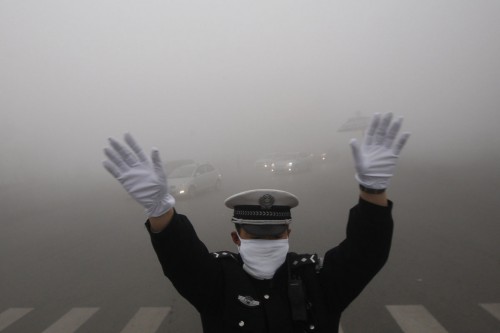
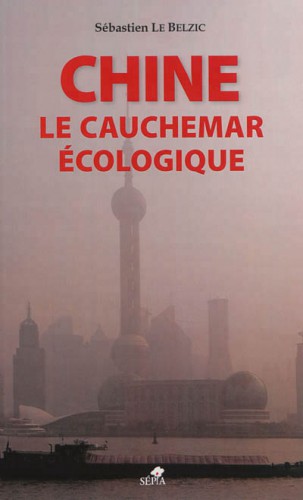 Chine : le cauchemar écologique est le titre du dernier ouvrage de Sébastien le Belzic, correspondant de presse en Chine et romancier (
Chine : le cauchemar écologique est le titre du dernier ouvrage de Sébastien le Belzic, correspondant de presse en Chine et romancier (
 del.icio.us
del.icio.us
 Digg
Digg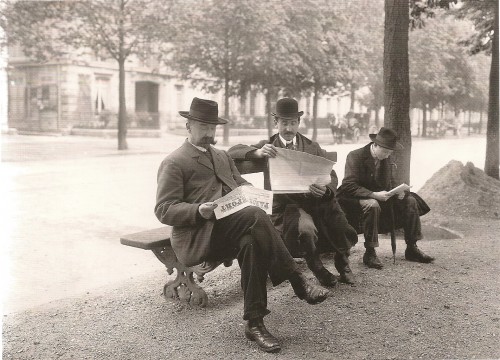
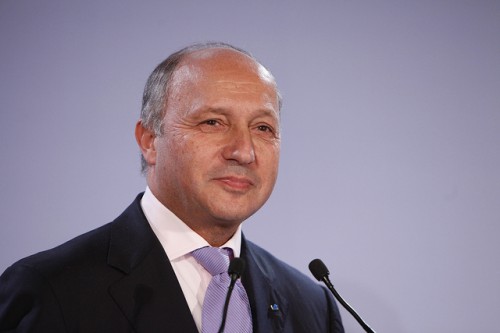
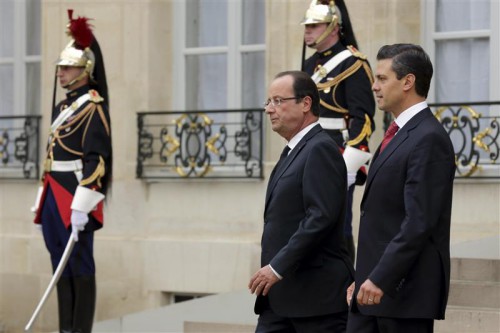
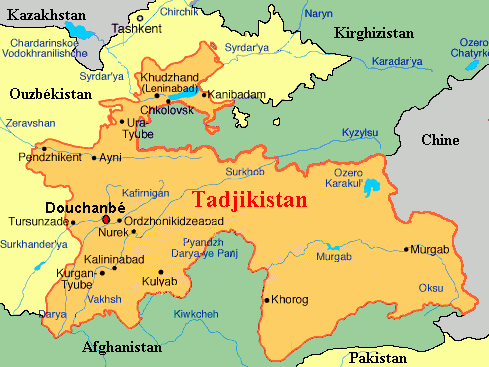



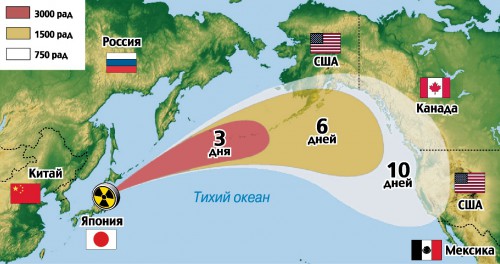
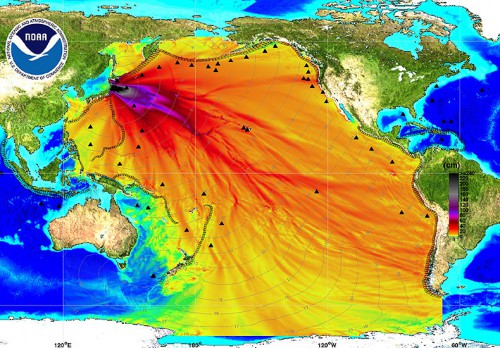
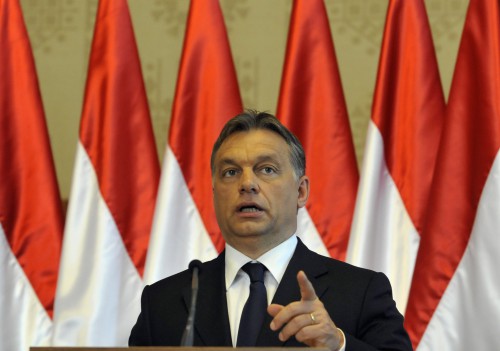


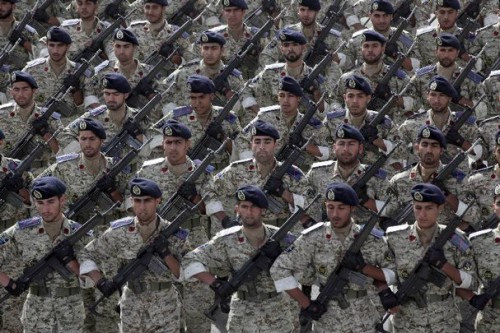
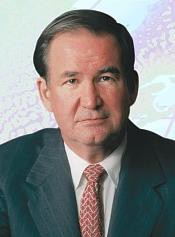 “Iran’s Nuclear Triumph” roared the headline of the Wall Street Journal editorial. William Kristol is again quoting Churchill on Munich.
“Iran’s Nuclear Triumph” roared the headline of the Wall Street Journal editorial. William Kristol is again quoting Churchill on Munich.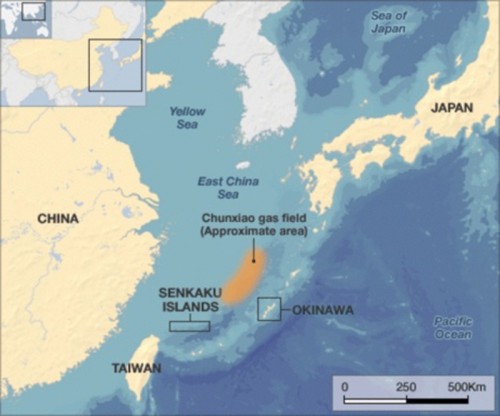
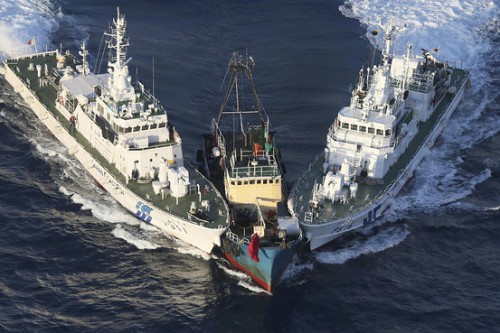 Dans sa déclaration de samedi, la Chine exigeait que tout appareil s'aventurant dans cette ZAI fournisse désormais au préalable son plan de vol précis, affiche sa nationalité et maintienne des communications radio permettant de "répondre de façon rapide et appropriée aux requêtes d'identification" des autorités chinoises, sous peine d'intervention des forces armées. Le ton est monté lundi entre Tokyo et Pékin à la suite de la décision chinoise d'imposer cette zone de contrôle aérien. Le même jour et en solidarité avec son allié japonais, le colonel Warren, porte-parole de la Défense américaine a qualifié la mesure chinoise d'"incendiaire". Des responsables du Pentagone ont alors précisé que les avions de l'armée américaine continueraient de voler dans cette région comme avant, sans soumettre de plans de vol à Pékin au préalable.
Dans sa déclaration de samedi, la Chine exigeait que tout appareil s'aventurant dans cette ZAI fournisse désormais au préalable son plan de vol précis, affiche sa nationalité et maintienne des communications radio permettant de "répondre de façon rapide et appropriée aux requêtes d'identification" des autorités chinoises, sous peine d'intervention des forces armées. Le ton est monté lundi entre Tokyo et Pékin à la suite de la décision chinoise d'imposer cette zone de contrôle aérien. Le même jour et en solidarité avec son allié japonais, le colonel Warren, porte-parole de la Défense américaine a qualifié la mesure chinoise d'"incendiaire". Des responsables du Pentagone ont alors précisé que les avions de l'armée américaine continueraient de voler dans cette région comme avant, sans soumettre de plans de vol à Pékin au préalable. 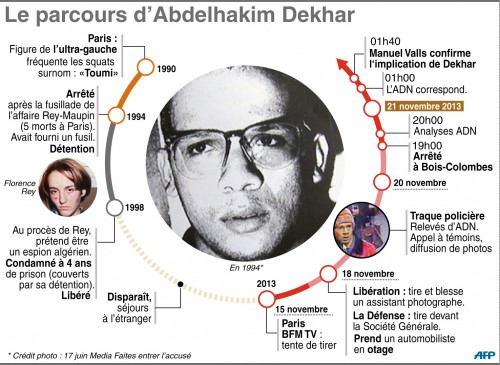
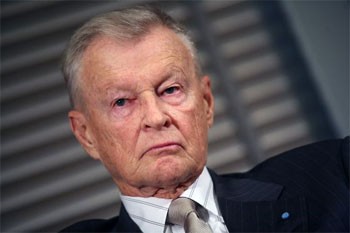

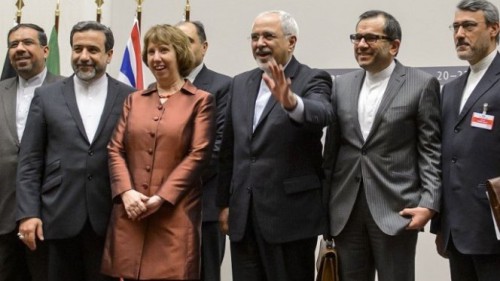


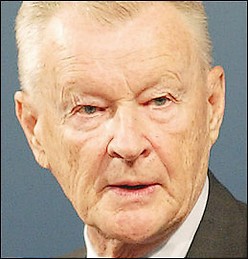 Un movimiento mundial de resistencia al control externo impulsado por el "activismo populista" amenaza con 'desviar' la transición hacia un nuevo orden mundial, declaró el exconsejero de Seguridad Nacional de EE.UU. Zbigniew Brzezinski.
Un movimiento mundial de resistencia al control externo impulsado por el "activismo populista" amenaza con 'desviar' la transición hacia un nuevo orden mundial, declaró el exconsejero de Seguridad Nacional de EE.UU. Zbigniew Brzezinski.